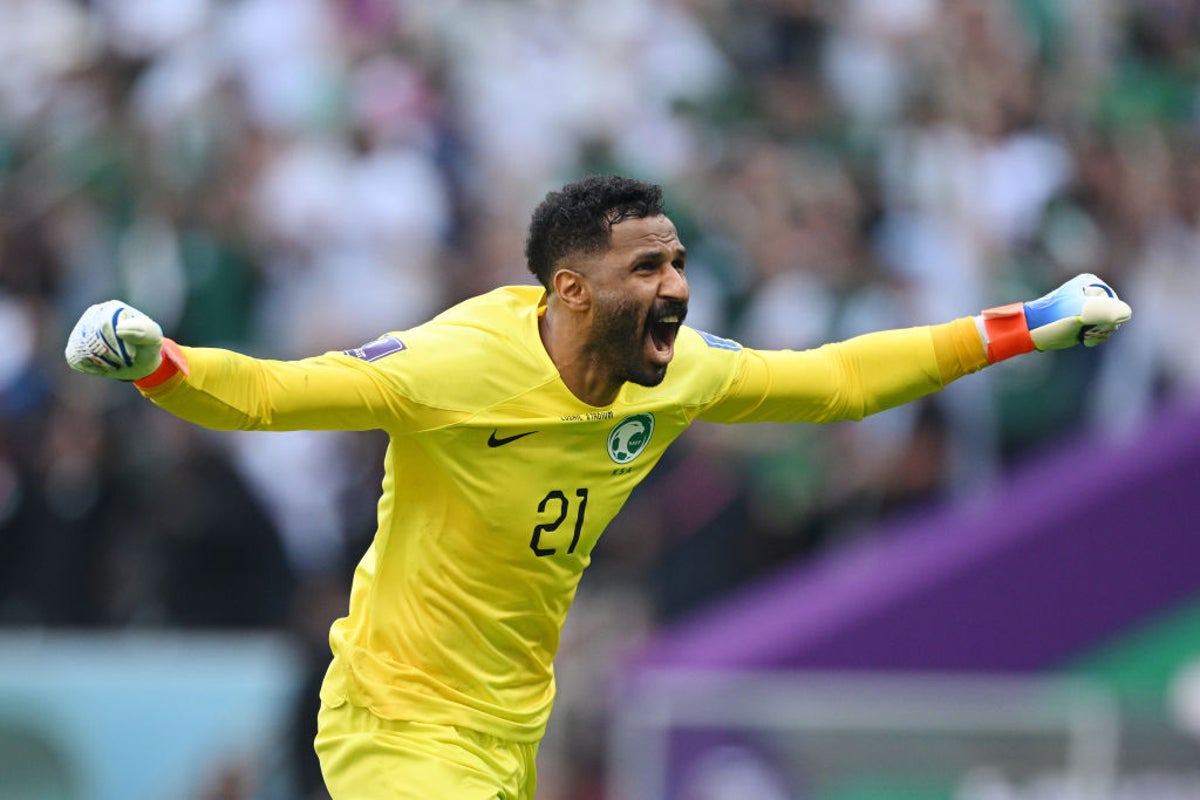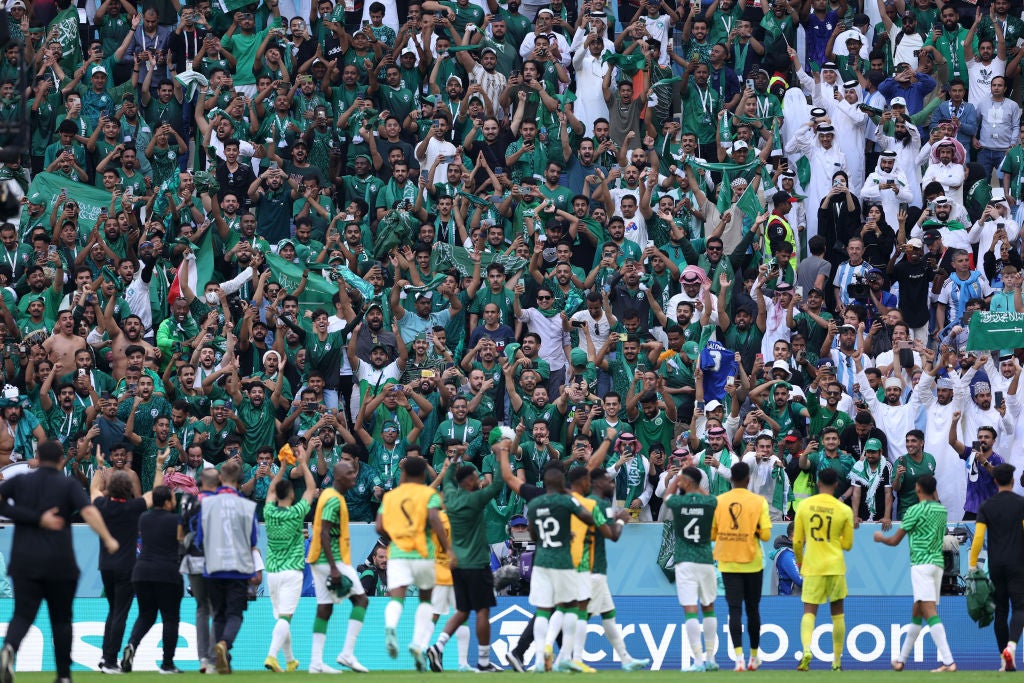
As the Saudi Arabian squad came through the Lusail Stadium mixed zone – these relative unknowns who had produced something reverberating around the planet – they all had the same line to the waiting media.
“It’s just three points.”
It’s been an attitude drilled into them by Herve Renard, and probably what is necessary to pull off a result like that. After the game, the accomplished coach told them to celebrate for 20 minutes “and that’s all”.
It is, however, so much more than one win or three points. It is one of the biggest sensations in World Cup history and maybe the greatest ever shock.
What would surpass it? Perhaps Argentina’s own defeat to Cameroon in 1990. Even that was in a very different football era, though, the gaps not as pronounced. It is why it can be said it had a similar feel to Algeria beating West Germany in 1982 but not quite the same dynamic. Maybe the closest in scale was Senegal defeating France in 2002.
This Argentina are not quite that French team, given the latter were defending world and European champions. But then this Saudi side did not have the European pedigree of that Senegal. The goalkeeper and fully deserved man of the match, Mohammed Al Owais, is substitute goalkeeper for his team Al Hilal. He is now responsible for one of the great World Cup moments, in his save from Nicolas Tagliafico.
It was, simply, an awesome moment.
And that is something worth reflecting on when it comes to results like this. There’s only so far you can reduce it to maths. It is ultimately about something bigger, beyond quantifying, which is the emotion of it all.
That was what the Lusail Stadium radiated. With tens of thousands of supporters from both countries, it was perhaps this World Cup’s first proper football occasion.
It was about the people, and the simple humanity of it all.

There is the more complicated issue, of course, of the Saudi state using this. It led to an even more politically weighted moment, which was the Emir of Qatar holding up the Saudi scarf. That would have been unthinkable just two years ago, given the Gulf blockade.
But, for all that states and elites and high powers seek to use these moments, there remains something so much more intrinsic and instinctive about football which gives it its power in the first place.
It is something the World Cup uniquely captures, including in Russia. The people and the football culture are always separate to the state trying to use them.
That is why an occasion as politically complicated as this can still be enjoyed.
It is not a state seeking to sportswash a team. It’s just a national team, with all of its history and background.

Argentina, for their part, have been through worse.
It is why, despite the angst that afflicted them on the pitch, there was actually a surprising calmness in the dressing room.
Lionel Messi told the group to stay composed, and stay together, that they could still recover.
“This is a group that stands out for its unity,” he said later. “It’s time to be more united than ever, show that we are truly strong. This group has not gone through a situation like this for a long time.”
He was of course referring to that 36-game unbeaten run but he could just as easily be referring to how they still got to the final of 1990 despite that Cameroon defeat.
The greater note of concern in all of that, however, is this was a hugely underwhelming performance. While Argentina had put some good moments together when they thought they were cruising in the first half, they never looked fully convincing. Saudi Arabia had already seen gaps, which were mostly being punctured by their intense pressing.

It got to Argentina, and meant they couldn’t get back into rhythm. They barely produced anything in general play in the second half. There was little construction to their attack, the team increasingly looking to get it to Messi. He was almost instantly crowded out.
It is not an excuse but it is at least possible some of this might have come from the difference in preparation.
While Saudi Arabia had a month together, and looked very much like they’d enjoyed the physical benefit of that, Argentina have had just seven days. They looked leaden.
That is why, far from a result that stands out, this could represent something of a trend. The lack of preparation time the top teams have had is similar to the 2002 World Cup in that sense, and that was defined by surprises.
Argentina, of course, went out early.
Messi told the players to banish such thoughts from their mind and to just concentrate on Mexico. That could be a game with a few different forces at work. In the same way this tournament seems to have a psychological hold over Argentina, Argentina seem to have a psychological hold over Mexico. They beat them in 2006 and 2010.
They just need to realise that, for the moment, all that matters is Saturday.
Renard has, meanwhile, been telling his players to look so much further than this game.
“All the stars in the sky were in the same line for us,” the Saudi Arabia coach said afterwards. “Don’t forget Argentina is a fantastic team. They came here without losing in 36 games. They were, they are, South American champions. They have amazing players. But this is football, sometimes completely crazy things can happen.”
And yet, as Argentina must now repeat to themselves as much as Saudi Arabia, it is just one game. Even if it is one that will go down in history.







